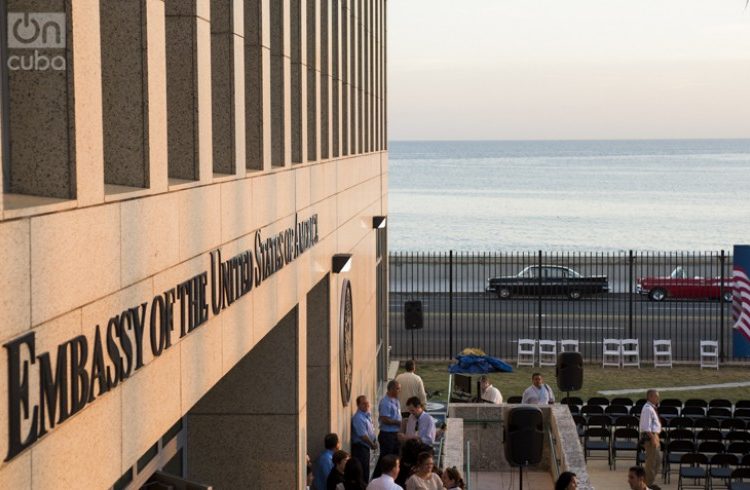The United States and Cuba today dealt during a meeting in Washington with the presumed “acoustic attack” suffered on the island by at least 16 U.S. diplomats, the White House reported.
The United States and Cuba today talked about the presumed attack during the third meeting of its official dialogue on justice, in which they also dealt with the matter of the U.S. fugitives living in Cuba or the situation of the Cubans with a deportation order in the United States.
The delegations also spoke about the incidents that have affected the diplomatic personnel in the U.S. Embassy in Havana, the White House pointed out in a release.
The U.S. delegation was made up by Acting Assistant Secretary of State for Western Hemisphere Affairs Francisco Palmieri; Department of Justice Deputy Assistant Attorney General Bruce Swartz; and Department of Homeland Security Acting Deputy Assistant Secretary for Law Enforcement Policy Justin Matthes.
The Cuban team was headed by Ministry of Foreign Affairs Director of Bilateral Affairs for the United States Yuri Gala López; and the National Defense and Security Commission Deputy Advisor Abel Gonzalez Santamaria.
The United States affirmed in August that 16 U.S. citizens of the “embassy’s community” in Cuba had suffered symptoms due to a presumed and mysterious “acoustic attack” in late 2016, although it underlined that it ignores who is “responsible.”
U.S. officials are “aggressively” investigating what caused the symptoms that range from the loss of hearing to slight cerebral lesions in 21 persons linked to the U.S. Embassy in Cuba, a Department of State official said this Thursday.
Spokeswoman Heather Nauert said in a press briefing that new incidents had not been reported since late August.
The incidents, which began in late 2016, were confirmed by a U.S. official in August. Nauert said that at that time 16 persons had been affected, according to Reuters.
Nauert said the investigation of all this is still ongoing and that it is an aggressive investigation that continues and they will continue doing this until it is found out who and what is responsible for this.
Trump’s administration has not blamed the Cuban government which is why the union that represents the Foreign Service officials called them “sonic harassment attacks” that date back to late 2016.
Cuba has denied any implication in the case and opened the possibility of a bilateral collaboration for the investigation, which in fact is being carried out.
On September 12 the Department of State reported that two more U.S. citizens suffered effects on their health of the unexplainable attacks in Cuba, raising the total to 21.
EFE / OnCuba










